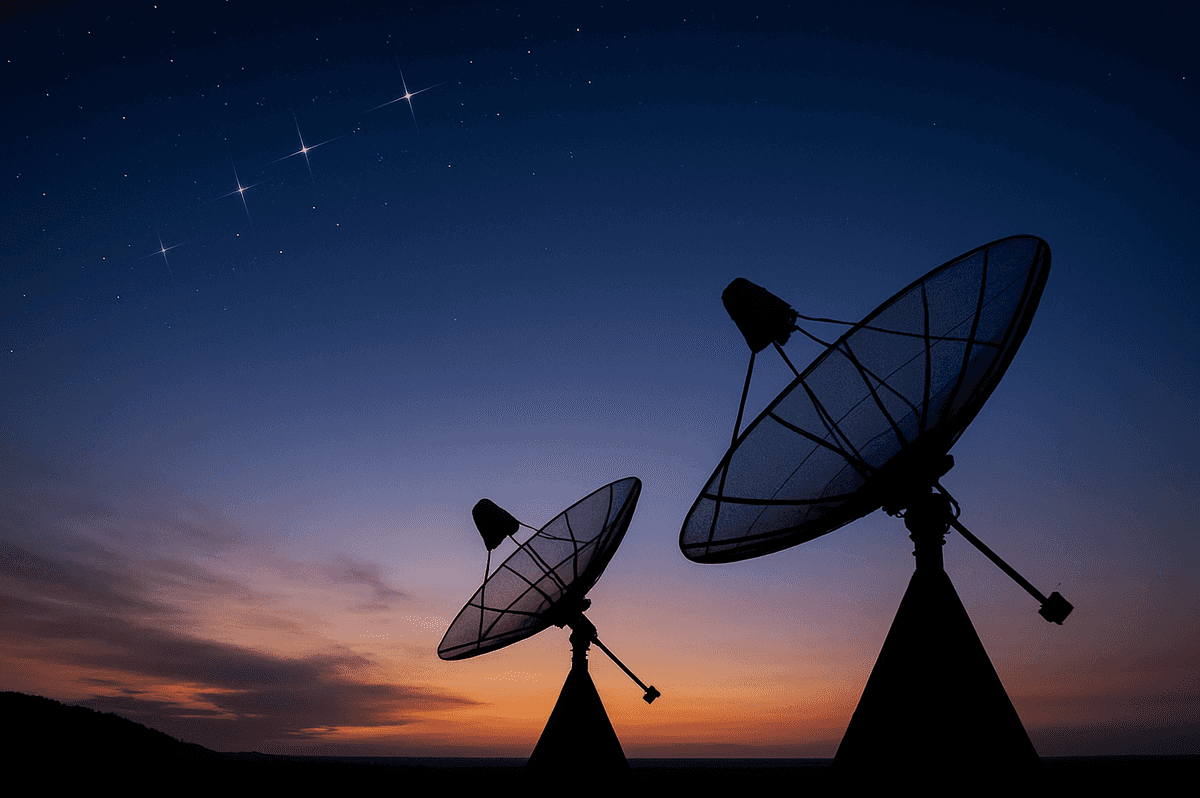Pakistan drafts new satellite internet licensing regime to attract global players
The new regime streamlines licensing, cuts costs and expands digital connectivity in Pakistan

Javed Hussain
Correspondent
I have almost 20 years of experience in print, radio, and TV media. I started my career with "Daily Jang" after which I got the opportunity to work in FM 103, Radio Pakistan, News One, Ab Tak News, Dawn News TV, Dunya News, 92 News and regional channels Rohi TV, Apna Channel and Sach TV where I worked and gained experience in different areas of all three mediums. My journey from reporting to news anchor in these organisations was excellent. Now, I am working as a correspondent with Nukta in Islamabad, where I get the opportunity of in-depth journalism and storytelling while I am now covering parliamentary affairs, politics, and technology.

Under the new framework, firms will need a single $500,000 license valid for 15 years, replacing the earlier 15 licenses totaling $640,000.
AI generated
The Pakistan Telecommunication Authority (PTA) has released a draft licensing framework for Fixed Satellite Services (FSS), a move expected to attract major global players such as Elon Musk’s Starlink, OneWeb, and Shanghai Spacecom into the country’s market.
The proposed regime simplifies licensing, lowers costs, and introduces regulatory safeguards, marking a significant step toward expanding digital connectivity in Pakistan, especially in underserved areas.
Under the new framework, shaped through stakeholder input, companies will need only a single license costing $500,000 - valid for 15 years - replacing the earlier requirement of 15 separate licenses amounting to $640,000.
The license will cover Fixed and Gateway Earth Stations as well as VSAT terminals, enabling broadband, backhaul, and satellite bandwidth services. Operators will be required to roll out services within 18 months, set up at least one Gateway Earth Station in Pakistan, and comply with local data residency requirements.
Before obtaining a license, providers must register with the Pakistan Space Activities Regulatory Board (PSARB), which is framing broader regulations under the 2023 National Space Policy and 2024 Space Rules.
Financial obligations for operators include annual contributions of 1.5% of revenues to the Universal Service Fund, along with 0.5% each for spectrum usage and annual license fees. A minimum Performance Bank Guarantee (PBG) of USD 50,000 will also be mandatory. PTA has invited industry feedback on the draft framework until September 19, 2025.
Security, data privacy and consumer protection at core of framework
The PTA has emphasized that national security, data privacy, and consumer protection will remain central to the licensing regime. The draft framework sets strict compliance requirements for operators:
- Violations of data privacy will trigger strict action, with PTA empowered to conduct inspections at any time.
- Operators must provide immediate access to law enforcement agencies, and block websites or online content upon PTA’s directives.
- The government reserves the right to suspend services during emergencies or in the interest of national security.
- Licenses may be suspended or revoked for fee/tax defaults, rollout delays, or other breaches of conditions.
- Gateway Earth Stations must be built within 18 months, and all user terminals must be registered locally.
- Cross-border transfer of user data is prohibited, and control of the Gateway Station must remain in Pakistan.
- Unauthorized internet or voice services are banned, while operators will be held responsible for avoiding frequency interference.
- Service termination requires a 90-day notice, although PTA or the government can order immediate shutdowns in emergencies.
Partnerships and future market entry
The framework operates under a class licensing regime, meaning any company registered with PSARB can collaborate with international operators to deliver satellite services in Pakistan.
Industry experts have hailed the draft as a breakthrough for expanding high-speed connectivity, predicting that global satellite providers will soon enter the Pakistani market under the new rules.







Comments
See what people are discussing